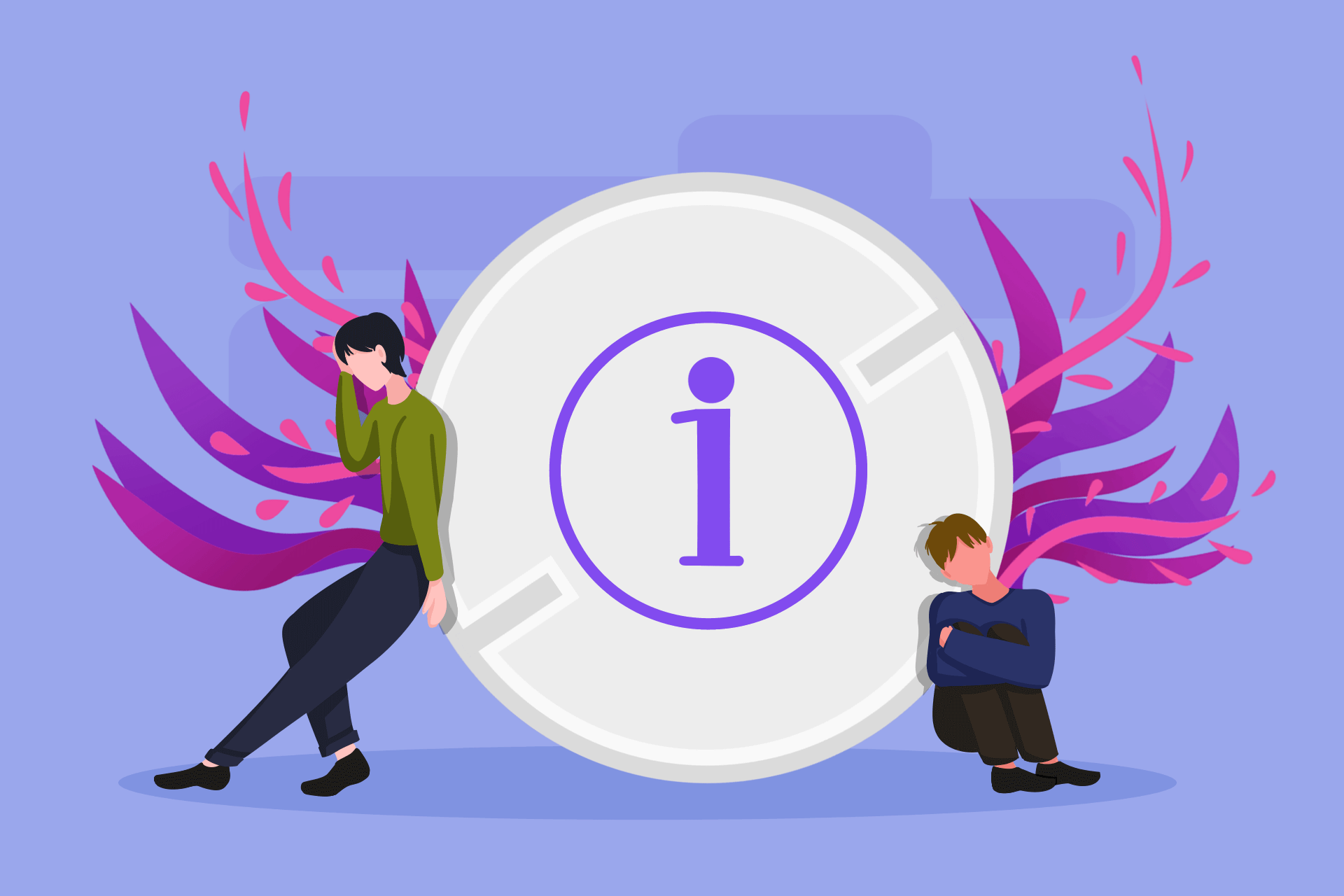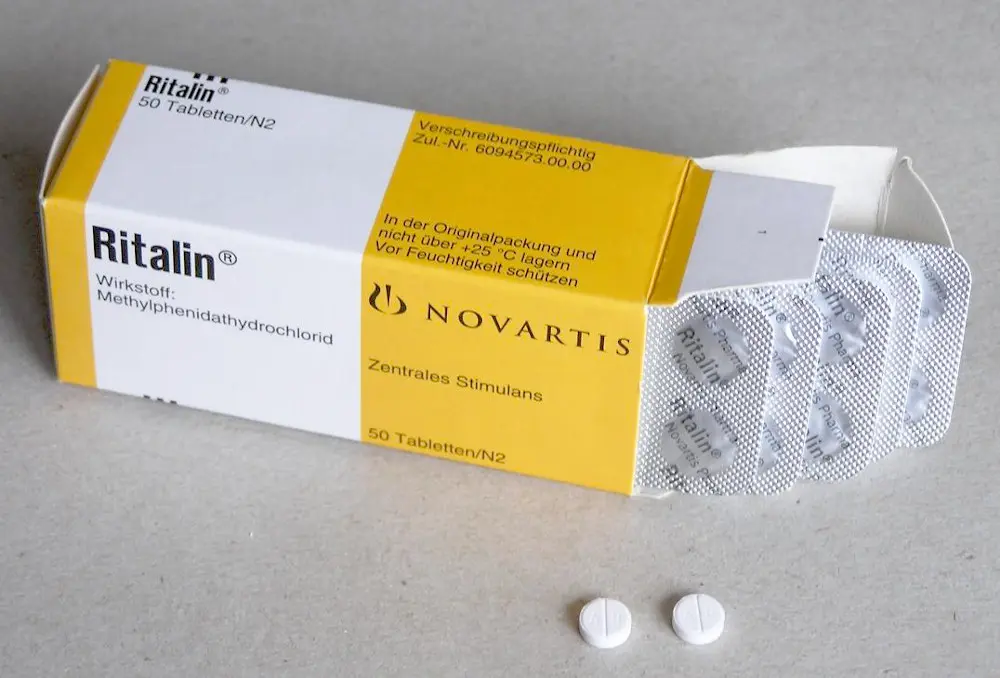Narcolepsy, a chronic neurological disorder that disrupts the brain’s ability to regulate sleep-wake cycles, affects roughly 1 in every 2,000 people in the USA. Coping with its challenges can be daunting, but medications like Ritalin offer significant relief. This comprehensive guide is your one-stop resource for understanding the role of Ritalin in narcolepsy treatment.
It reviews its uses, recommended dosage, possible negative effects, and comparative analysis with other commonly prescribed medications such as modafinil and Adderall. Whether you’re newly diagnosed or seeking additional information, let’s embark on this journey to better understand and manage narcolepsy effectively.
What Is Ritalin?
Ritalin, a brand name for methylphenidate, is a central nervous system (CNS) stimulant that was originally developed in the 1950s by the Swiss pharmaceutical company CIBA, now Novartis. The name “Ritalin” has an interesting origin: It comes from Marguerite “Rita” Panizzon, the wife of Leandro Panizzon, who synthesized the drug. Rita was the first person to try methylphenidate and relayed its effects to her husband. In 2021, this drug ranked as the 43rd most frequently prescribed medication in the United States, with over 15.2 million prescriptions recorded [1].
Ritalin gained its initial approval from the Food and Drug Administration (FDA) for the treatment of attention deficit hyperactivity disorder (ADHD) in the 1950s. Renowned for its efficacy, the drug enhances attention, diminishes hyperactivity, and aids in managing impulsivity among children, adolescents, and adults diagnosed with ADHD.
At its core, methylphenidate, the active ingredient in Ritalin, works by increasing the levels of crucial neurotransmitters like dopamine and norepinephrine in the brain. These chemicals play pivotal roles in regulating attention, behavior, and the sleep-wake cycle.
Besides the brand name Ritalin, methylphenidate is available under various generic names, promoting accessibility and affordability for patients. Generics typically offer equivalent efficacy and safety to the brand-name medication, ensuring effective options for symptom management.
What Is Ritalin Prescribed For?
In addition to its approved use for ADHD, methylphenidate may also be prescribed off-label for certain conditions. This includes treatment-resistant cases of bipolar disorder and major depressive disorder, where conventional treatments have proven ineffective [2]. Research has shown promising results in using methylphenidate to alleviate depressive symptoms in various patient populations, such as those affected by stroke, cancer, and HIV.
Furthermore, Ritalin may be employed in the management of other psychiatric and neurological disorders, such as cognitive impairments associated with traumatic brain injury. Its stimulant properties have been found to enhance attention and memory in individuals with brain injuries [3].
However, it’s important to note that while off-label use of methylphenidate can be effective in certain cases, it should always be prescribed and monitored by a qualified healthcare professional. Proper evaluation, dosage adjustment, and management of potential side effects are essential to ensure safe and effective treatment outcomes.
Is Ritalin Used for Narcolepsy?
Yes, Ritalin is used for narcolepsy as a second-line treatment option. This is a chronic neurological disorder characterized by excessive daytime sleepiness, uncontrollable sleep episodes, and disrupted nighttime sleep patterns. The drug helps address these symptoms by promoting wakefulness during the day and reducing episodes of uncontrollable sleepiness. Its efficacy in managing narcolepsy symptoms is well known, making it a valuable option for individuals with this condition.
Drug Main Benefits
Ritalin has been shown to promote wakefulness in individuals with narcolepsy, leading to increased alertness. This effect is attributed to its influence on dopamine release, essential for motivation, memory, and reward, as well as norepinephrine activation, which primes the body for action, especially in fight-or-flight scenarios.
One of the key benefits of Ritalin for narcolepsy is its ability to boost concentration, thereby improving cognitive function. Research demonstrates that individuals experience enhanced focus and concentration, reduced restlessness, better impulse control, and improved listening skills [4][5]. These cognitive enhancements contribute to heightened productivity in both academic and professional settings.
The drug offers broader cognitive benefits beyond concentration and alertness for narcolepsy patients. It has been found to enhance working memory, processing speed, verbal learning, vigilance, reasoning, and problem-solving skills, to varying degrees [6].
By promoting wakefulness, enhancing concentration, and improving cognitive abilities, Ritalin ultimately enhances the quality of life for individuals with narcolepsy. It enables better management of symptoms and facilitates increased participation in daily activities, leading to a more fulfilling lifestyle.
Dosage of Ritalin for Narcolepsy
For the treatment of narcolepsy, the immediate-release form of Ritalin is typically used. It is available in 5 mg, 10 mg, and 20 mg doses. For adults, the recommended starting dosage is usually 20–30 mg/day, with a maximum daily dosage of 60 mg. Children aged 6 years and older typically start with 5 mg twice daily. The dosage may then be gradually increased by 5–10 mg per week if necessary, up to a maximum of 60 mg per day [7].
When taking this med, your physician may advise splitting the total daily dose into 2 or 3 administrations, typically 30–45 minutes before meals. This helps maintain consistent drug levels in your system. Additionally, it’s recommended to take Ritalin at the same time(s) each day to ensure consistent efficacy.
Your prescribed dosage will be determined by various factors such as your condition’s severity, age, and other medical considerations. Always follow your doctor’s instructions regarding dosage and administration of Ritalin for narcolepsy, and never adjust your dosage without consulting them first.
Side Effects & Safety
Ritalin, like any medication, can potentially cause negative effects, although not everyone experiences them. It’s essential to be aware of these reactions and discuss any concerns with your physician. Here is a list of common negative effects of methylphenidate [8]:
- insomnia;
- reduced appetite;
- headache;
- heart problems, such as augmented heart rate and palpitations;
- upper abdominal pain.
In some cases, Ritalin may cause more serious side effects:
- heightened blood pressure;
- mental health effects, such as anxiety and mania;
- priapism;
- problems with circulation to your fingers, legs, arms, or toes, which may comprise Raynaud’s phenomenon;
- severe allergic reaction.
Seek medical attention if you experience any severe or persistent negative effects after taking Ritalin. Additionally, the drug may interact with other meds or substances, so inform your doctor of any other medications, supplements, or recreational drugs you are taking.
To ensure the safe and effective use of methylphenidate, follow the safety considerations in the drug leaflet and adhere to your physician’s instructions, including the following:
- take it exactly as prescribed. Don’t exceed the recommended dosage or take it more frequently than instructed;
- avoid alcohol and other CNS depressants while taking Ritalin, as they may augment the risk of negative effects or interactions;
- monitor your response to this stimulant and document any unusual symptoms or changes in behavior to your physician.
Besides, attend regular follow-up appointments with your doctor to assess your progress and adjust your treatment plan as needed.
Ritalin vs. Adderall
When comparing Ritalin vs Adderall, it’s evident that both drugs are commonly prescribed for the treatment of ADHD and narcolepsy. While they both belong to the class of CNS stimulants and have identical therapeutic effects, there are key differences between the two.
Ritalin contains methylphenidate, while Adderall contains a combination of dextroamphetamine and amphetamine. This chemical difference can result in variations in how the meds affect individuals, influencing factors such as the onset of action and duration of effect. Adderall typically exhibits a longer duration of action in the body compared to Ritalin, while Ritalin often achieves peak effectiveness more rapidly.
Both meds are available in immediate-release (IR) and extended-release (XR) formulations, with the duration of action typically longer in XR formulations compared to IR formulations. Both meds may have comparable effectiveness at different doses, with similar levels of clinically significant side effects due to their pharmacological similarities.
Overall, Ritalin and Adderall can be effective treatment options for narcolepsy, providing relief from symptoms such as excessive daytime sleepiness and uncontrollable sleep episodes. However, individual responses and preferences should be considered when selecting the most suitable medication for each patient. Consulting with a healthcare provider is essential to determine the most appropriate treatment plan based on the individual’s specific needs and medical history.
Ritalin vs. Modafinil (Provigil)
Ritalin and modafinil (sold under the brand name Provigil) are medications used to increase wakefulness in patients with excessive daytime sleepiness due to narcolepsy. While Ritalin is approved to treat ADHD, Provigil is primarily approved for sleep disorders such as narcolepsy, obstructive sleep apnea, and shift work sleep disorder. However, modafinil is commonly used off-label for ADHD treatment and various other conditions.
The mechanisms of action for Ritalin and modafinil differ. Ritalin primarily targets dopamine and norepinephrine reuptake inhibition, while modafinil acts on multiple neurotransmitter systems to promote wakefulness. In terms of side effects, Provigil tends to have fewer negative effects and is generally better tolerated than methylphenidate, although some individuals may experience headaches, nausea, or nervousness. Their half-lives also vary, with modafinil having a longer duration of action than Ritalin. This disparity can influence dosing frequency and overall duration of action for each med.
A notable difference exists in their classification: Ritalin is classified as a Schedule II controlled substance, while modafinil is categorized as a Schedule IV controlled substance. This means that the latter has a lower potential for abuse and dependence compared to methylphenidate. Conversely, Ritalin carries a higher risk of abuse and may lead to severe psychological or physical dependence.
In conclusion, Ritalin and Provigil offer unique approaches to combating excessive daytime sleepiness, with the former primarily targeting ADHD and the latter focusing on sleep disorders like narcolepsy. The choice between these medications should be based on individual patient needs, response to treatment, and potential side effects, with careful consideration given to the specific indications for each drug.
The Verdict: Ritalin for Narcolepsy
In conclusion, Ritalin stands as a valuable treatment option for individuals grappling with narcolepsy due to its effectiveness in promoting wakefulness, reducing sudden sleepiness, and fostering alertness. Nonetheless, considerations such as dosage, potential side effects, and risk of abuse are essential in its therapeutic decision-making process, highlighting the importance of close collaboration with a healthcare provider.
When compared to Adderall, Ritalin typically exhibits a shorter duration of action but offers similar benefits and side effect profiles. In contrast, modafinil is recognized for its favorable safety profile and widespread use across various conditions. While Ritalin presents a compelling option for narcolepsy treatment, careful evaluation against alternatives is necessary, taking into account individual needs and medical considerations.
References
- Methylphenidate. Retrieved: May 4, 2024. Wikipedia.org.
- Effectiveness of Methylphenidate as Augmentation Therapy After Failure of Adjunctive Neuromodulation for Patients with Treatment-Refractory Bipolar Depression: A Case Report. By Marc Adida and Jean-Michel Azorin. Published: April 2, 2014. Ncbi.nlm.nih.gov.
- Methylphenidate: Its Pharmacology and Uses. By Thomas D. Challman and James J. Lipsky. Retrieved: May 4, 2024. Mayoclinicproceedings.org.
- What Are the Effects of Ritalin? By Ruth Eagle. Medically reviewed by Dena Westphalen. Retrieved: May 4, 2024. Medicalnewstoday.com.
- Ritalin Oral: Uses, Side Effects, Interactions, Pictures, Warnings. Retrieved: May 4, 2024. Webmd.com.
- Cognitive Effects of Methylphenidate in Healthy Volunteers: A Review of Single Dose Studies. By A. M. W. Linssen, A. Sambeth, E. F. P. M. Vuurman, and W. J. Riedel. Published: June 2014. Pubmed.ncbi.nlm.nih.gov.
- Ritalin Dosage: Forms, Strengths, How to Take, and More. By Jen Seabright. Medically reviewed by Elizabeth Scheffel. Published: August 23, 2023. Medicalnewstoday.com.
- Side Effects of Ritalin: What You Need to Know. By Amber R. Watson. Medically reviewed by Alex Brewer. Published: November 9, 2023. Healthline.com.








